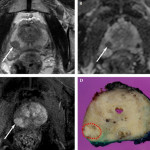Editorial: Viewpoint – Rationing and Surgical Care
Limitation in the provision of surgical care has many causes. In a nationalised healthcare system, this often reflects lack of funds, leading to rationing of clinical services. Rationing itself takes a number of forms. Deliberate exclusion of specific operations (usually elective) or specific patient groups (smokers, obese) are the most common examples, but strategic extension of waiting times by the removal of ‘target’ times can also be used as a rationing tool.
Many surgeons are dismayed by these decisions. They feel that the surgical patient is unfairly targeted as the clinical and cost-effectiveness of many planned surgical interventions have been well characterised. Surgeon and institutional outcomes are freely available – unlike the situation in many non-surgical specialties, so how can it be fair to pick on the surgical patient?
The idea that non-urgent elective surgery falls into neat categories where delay has no adverse consequences for the patient mystifies many surgeons. Whilst all would advocate a healthy diet, exercise, weight loss and smoking cessation, decisions to withhold surgery from the obese or those who smoke is rarely evidence-based. Rationing based on such prejudice soon becomes illogical. Why should the obese cancer patient receive an operation when the obese incontinent patient cannot?
In the long term, the absence of a substantial volume of ‘routine’ surgery damages training as exposure to such procedures is limited. Surgery has become the soft target for rationing clinical services. Surgeons should make their patients aware of how this process will affect them. Healthcare planners need to hear a public voice as well as that of the clinicians.
Just occasionally, an apparent limitation can be beneficial. In this issue of the BJUI, the National Institute for Health and Care Excellence (NICE) provides clear guidance on preoperative testing. This is based on sensible recommendations such as: avoiding routine urine dipstick testing, routine chest X-rays, and glycated haemoglobin (HbA1c) in non-diabetic patients. All surgeons irrespective of their specialty would benefit from paying close attention to these important guidelines [1].
Derek Alderson
President of the Royal College of Surgeons of England; Emeritus Professor of Surgery, University of Birmingham; Editor-in-chief of BJS Open.
Reference
1 National Institute of Health and Care Excellence (NICE). Routine preoperative tests for elective surgery: © NICE (2016) Routine preoperative tests for elective surgery. BJU Int 2018; 121: 12–6



